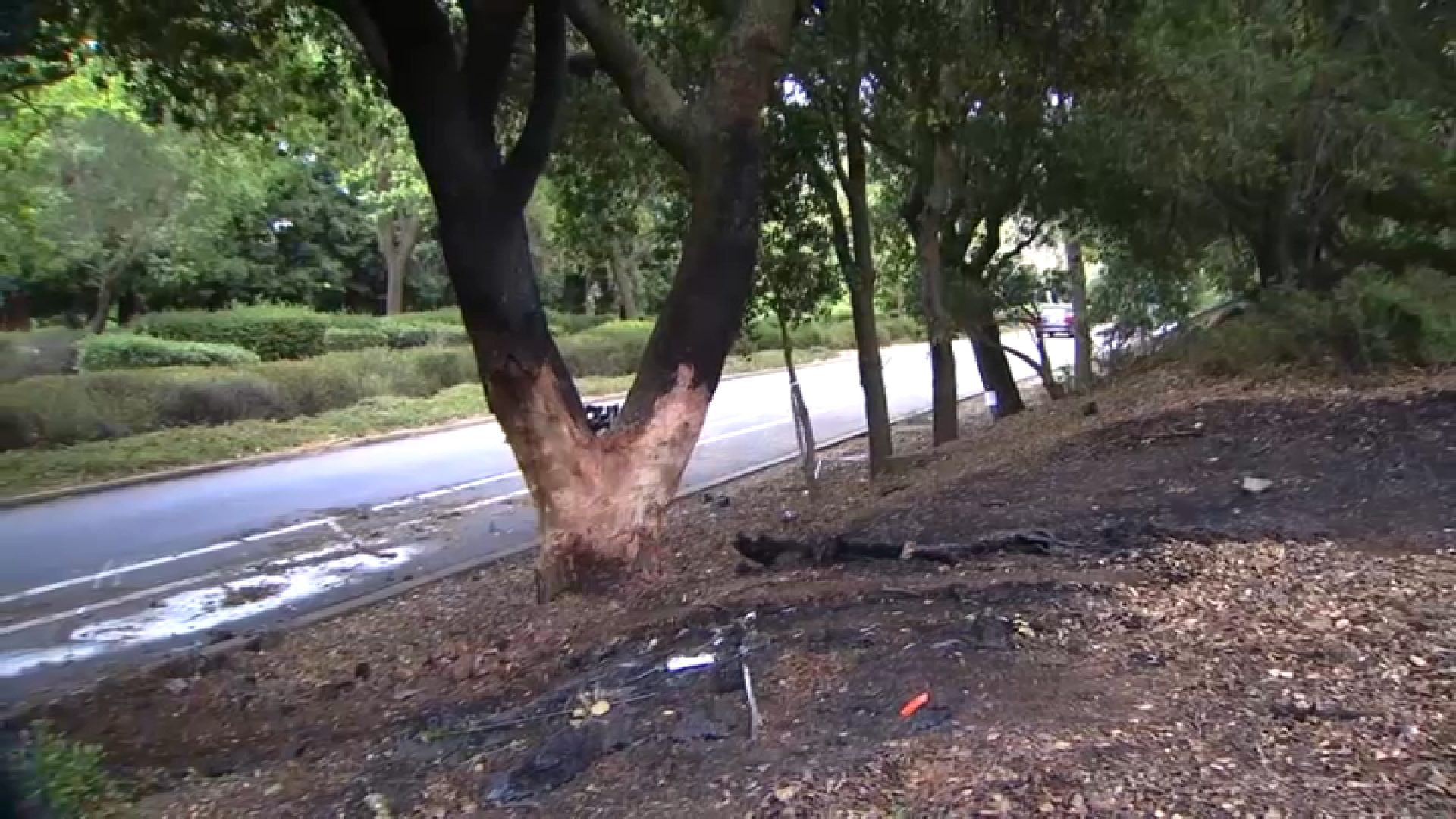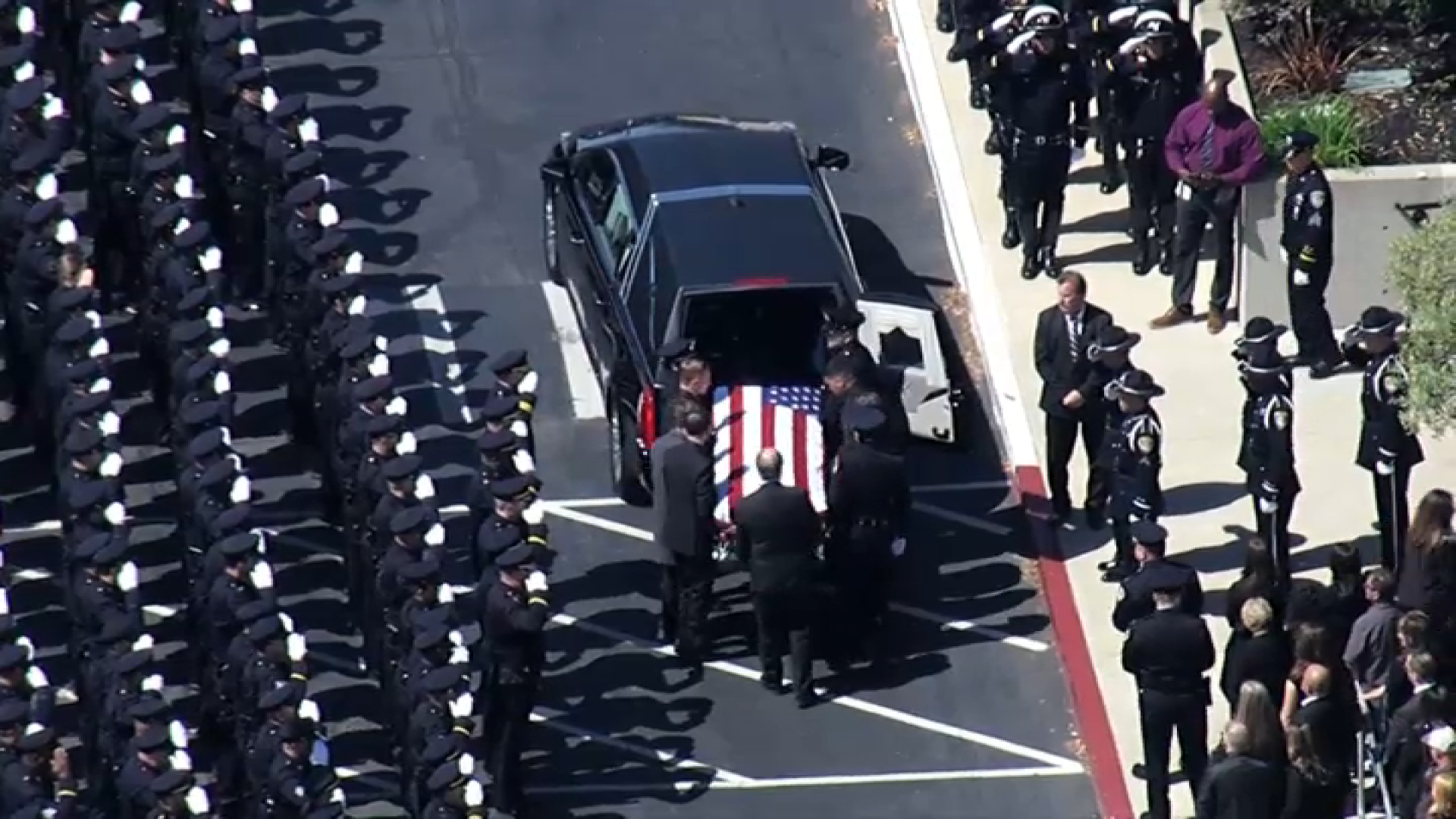Most Bay Area students attend a school that’s regularly patrolled by a campus police officer, but an NBC Bay Area investigation found many schools fail to outline even the most basic roles and responsibilities of those officers.
Those blurred lines have led to children and teens being arrested or cited for what some describe as “childish misbehavior.” The Investigative Unit’s reporting found students with disabilities and students of color are arrested at disproportionately high rates.
Nearly 230,000 students across more than 100 Bay Area schools are served by school districts that have no guidelines in place for when an officer should or should not get involved in a situation at school involving a student. That’s about a quarter of all students in the area.
After reviewing the Investigative Unit’s findings, a Bay Area lawmaker now plans to explore new legislation that would potentially require schools across California to explicitly outline the roles of police officers on school campuses.
“Regardless of intent, I think the data doesn’t lie,” said Assemblymember Tony Thurmond, who represents a large swathe of the East Bay that includes Richmond, Berkeley and Emeryville. “And if the data says that African-American students and students with disabilities are being cited more often than their peers, then that’s something that we have to address.”
Local
Thurmond, who serves on the Assembly Committee on Education, said exposing kids to the criminal justice system for minor infractions can have long-term consequences.
“These are opportunities for kids to learn how to correct their behavior, how to take responsibility for their actions,” Thurmond said. “If they end up with a criminal record, we’re doing them an even greater disservice.”
Take the case of Adrian Crosby, a San Jose seventh grader arrested for vandalism for using a rock to scribble his initials on the sidewalk outside of Bret Harte Middle School.

Or Kai Segura, the high school freshman arrested for trespassing for doing summersaults on the muddy lawn during lunch at Leland High School.
Crosby and Segura now both have a juvenile arrest on their criminal record, something they can’t petition a judge to remove until they turn 18. Even then, there’s no guarantee the arrest will be scrubbed from their records.
The chief of the Oakland Unified School District Police Department said he would have handled those cases differently.
“Once you put this juvenile into the criminal justice system, it is difficult if not impossible to get out of that system,” Chief Jeffrey Godown said.
Oakland Unified School District has a 13-page agreement in place, commonly called a “Memorandum of Understanding” (MOU), between the district and its police department. The document, a collaborative project that included the district, the police department and the ACLU, spells out that student discipline is the responsibility of school administrators, not police officers.
Godown said the agreement protects students, but also protects his officers from becoming school disciplinarians. He’s not a believer in the “scared straight” mentality and his officers don’t arrest students for minor infractions such as trespassing or possessing a small amount of marijuana. Instead, those situations are handled administratively.
“Some of these kids are coming to school and they’ve got issues,” Godown said. “In a lot of instances, you’ve got five or six-year-old kids and they’re being raised by their twelve or thirteen-year-old sister. They come to school angry, they come to school with a lot of emotional issues, and those have to be handled in the school, not by police.”
Godown said his officers have used that MOU to push back against administrators who called them to handle a situation that should not involve the police. He said his officers are there to maintain a safe environment and to serve as positive role models for students.
Thirteen-year-old Aaron Gonzalez admits not all of his classmates trust police officers, but the Oakland seventh grader counts one of Godown’s officers as a major influence in his life.
“The first time I gave him a handshake he was like, ‘that’s now how you shake a person’s hand,’ and he taught me how to grip with a person,” Gonzalez said. “So at that point I was like, ‘oh yeah, this is a guy that some people can look up to.”
He’s referring to Officer Ryan Welch.
Aaron used to get in trouble for fighting and the teenager said his family had its share of ups and downs. His mom, Yadira, raises Aaron and his three siblings alone and makes ends meet by working the early morning shift at a local restaurant.
“We really don’t have the perfect life I guess you could say,” Aaron said.
But when Aaron met Welch, his behavior and his grades started to turn around. Welch mentored Aaron by checking on his grades and counseling him when he would slip up. Now Aaron wants to go to college and become a Navy SEAL, things he’d never considered before meeting Welch.
“Almost everyone in my neighborhood knows me, so when they see police, they think I’m in trouble and they ask me why they are here,” Aaron said. “I tell them what he does for me and how he supports me.”
______________________________________
Need to contact our Investigative Unit?
• You can remain anonymous
• 1-888-996-TIPS
______________________________________
Watch the entire series in this NBC Bay Area investigation:
- Part 1: Disproportionate Number of Disabled, African American Students Arrested at School
- Part 2: School District Called Police on Students 1,745 Times in Single School Year
- Part 3: Teen Arrested for Somersaults on School Lawn; District Says Risk of Criminal Records "Not Our Business"
- Part 4: Investigative Unit Series Sparks Major Security Changes at 34 schools, Impacting Thousands of Students
- Part 5: Nearly 230,000 Bay Area Students Attend Schools with No Guidelines in Place for Campus Police Officers
- Part 6: Obama Admin. to Schools: Stop Misusing Police Officers
- Part 7: White House Pushes Nationwide Reform Following I-Unit Series
- Part 8: Black Students, Disabled are 3X More Likely to Face Arrest at School



